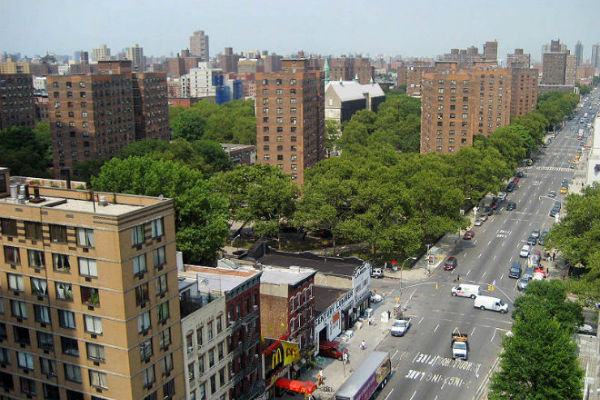 The Health Department today released its first comprehensive data brief on depression among New York City adults. Approximately 548,000 adults (9 percent) in New York City experienced depression in 2016, according to a survey started shortly after ThriveNYC was launched in late 2015. The report examines disparities in depression rates among race/ethnic groups; significant risk factors associated with depression; and the groups most likely to receive treatment for depression. Among the data brief’s findings: Latino adults (13 percent) experienced depression at nearly twice the rate of White (7 percent), Black (8 percent) and Asian and Pacific Islander (5 percent) adults. In addition, adults with chronic diseases – specifically hypertension, diabetes or asthma – were at least twice as likely to report being depressed. New Yorkers with depression were also more likely to be current smokers, drink sugary beverages, and not get enough exercise. These data will be used by the Health Department to inform its mental health initiatives and will be distributed to community partners.
The Health Department today released its first comprehensive data brief on depression among New York City adults. Approximately 548,000 adults (9 percent) in New York City experienced depression in 2016, according to a survey started shortly after ThriveNYC was launched in late 2015. The report examines disparities in depression rates among race/ethnic groups; significant risk factors associated with depression; and the groups most likely to receive treatment for depression. Among the data brief’s findings: Latino adults (13 percent) experienced depression at nearly twice the rate of White (7 percent), Black (8 percent) and Asian and Pacific Islander (5 percent) adults. In addition, adults with chronic diseases – specifically hypertension, diabetes or asthma – were at least twice as likely to report being depressed. New Yorkers with depression were also more likely to be current smokers, drink sugary beverages, and not get enough exercise. These data will be used by the Health Department to inform its mental health initiatives and will be distributed to community partners.
The report also underscored the need for accessible mental health treatment in New York City, a priority under the de Blasio Administration. More than half of adults with depression (62 percent) had not received any mental health treatment in the past 12 months. In November 2015, the City launched ThriveNYC, a set of 54 initiatives to change the conversation and stigma surrounding mental illness and provide greater access to mental health care. New Yorkers can contact NYC Well for free and confidential support at any hour of the day in over 200 languages by calling 1-888-NYC-WELL, texting “WELL” to 65173 or going to nyc.gov/nycwell. NYC Well will make connections to effective treatment options. In addition, anyone can take a free Mental Health First Aid course to learn how to identify, understand and respond to signs of mental health challenges, including depression. The full report on depression among adults is available online.
“This new data underscores what we have known to be true,” said First Lady Chirlane McCray, who spearheads ThriveNYC. “Depression is a common disease experienced by New Yorkers, but most New Yorkers who are suffering are not seeking treatment. Mental illness touches every single one of us directly or indirectly through family and friends. And it’s treatable. Our job is to make sure every New Yorker knows that there’s always hope, and there is always help that is confidential and completely free, by calling 1-888-NYC WELL. No one has to suffer alone.”
“Behind these data are the life stories of more than half a million New Yorkers living with depression which underscores the importance of addressing barriers to care,” said Dr. Herminia Palacio, Deputy Mayor for Health and Human Services. “This administration has been committed to improving mental health care in New York City with initiatives such as ThriveNYC that support New Yorkers to reverse the impact of depression, and other mental health conditions, on their daily lives.”
“Depression is incredibly common – 1 in 11 adults – and can affect anyone. But it is even more common among Latino New Yorkers, older people and people with less education and lower income,” said Health Commissioner Dr. Mary T. Bassett. “We hope these data encourage primary care doctors to regularly screen their patients for depression. Depression is treatable, and we encourage all New Yorkers to seek help if they need it.”
“This report underscores what we already know to be true – no community is immune to depression,” said Public Advocate Letitia James. “With a significant population of New Yorkers suffering from mental illness, it is more critical than ever to provide treatment and fight the stigmas associated with mental health. I am proud to have an agencies and initiatives like the Health Department, and ThriveNYC that are able identify mental health concerns among New Yorkers, and are equipped to tackle them head on.”
“Depression can affect anyone, but these new findings suggest that low-income people of color are more likely to experience the disorder. Initiatives such as ThriveNYC are crucial to help combat stigma and expand access to mental health care in communities that need it most. As Chair of the Committee on Mental Health, Disabilities, and Addiction, I am looking forward to partnering with the Department of Health and Mental Hygiene to ensure that New Yorkers are accessing the mental health treatment they deserve,” said Council Member Diana Ayala.
To gather data for the report, Health Department researchers spoke to approximately 10,000 New Yorkers as part of its annual NYC Community Health Survey. Depression is one of the most common mental health disorders. Estimates of current depression were determined using eight questions to assess the frequency of depression symptoms over the past two weeks. The questions assessed symptoms including the level of interest in doing things, feeling down or depressed, difficulty with sleeping, energy levels, eating habits, feeling bad about oneself, and ability to concentrate.
Depression among New York City adults data highlights
Overall prevalence:
- Adults ages 45 to 64 (11 percent) were more likely to be depressed than 25 to 44 year olds (8 percent).
- The prevalence of depression was higher in the Bronx (12 percent) compared with Manhattan (7 percent) and Brooklyn (8 percent).
Socioeconomic status:
- Adults who had less than a high school education (17 percent), were high school graduates (11 percent) or completed some college (8 percent) had a higher prevalence of depression compared with college graduates (4 percent).
- Adults with the lowest household income had the highest prevalence of depression (13 percent) compared with those with the highest household income (4 percent).
- Adults insured through Medicare (17 percent), Medicaid (15 percent) or uninsured individuals (9 percent) had a higher prevalence of depression compared with privately insured adults (5 percent).
- People who were unemployed (18 percent) or not in the labor force (14 percent) were about three times more likely to have depression than people who were employed (5 percent).
Personal safety:
- Adults who reported that their neighborhood was unsafe (17 percent) were more than twice as likely to be depressed as those who reported that their neighborhood was very safe or somewhat safe (8 percent).
- Adults who had ever been physically hurt by an intimate partner (24 percent) were three times more likely to have depression than those who had not (8 percent).
Chronic disease:
- Adults who had ever been told that they had hypertension were three times more likely to have depression than those who had not (18 percent versus 6 percent). Similarly, adults who had been told they had diabetes (17 percent versus 8 percent) or asthma (17 percent versus 7 percent) were more than twice as likely to have depression compared with those had not.
- Adults with depression were more likely than those without to be current smokers (23 percent versus 12 percent) and to consume one or more sugary drinks per day (31 percent versus 22 percent).
- Compared with adults without depression, New Yorkers with depression were more likely to not have eaten any fruits or vegetables on the previous day (25 percent versus 11 percent) and to report not having exercised in the past 30 days (44 percent versus 26 percent)
Treatment:
- Adults born in the U.S. (49 percent) were more likely to receive treatment compared with New Yorkers born outside of the U.S. (24 percent).
- Adults with depression were more likely to receive mental health treatment (medication and/or counseling) if they were 45 to 64 years old (51 percent) compared with those ages 25 to 44 (36 percent) or 65 years or older (33 percent).
Find more information about Health Department here.
Become a Harlem Insider!
By submitting this form, you are consenting to receive marketing emails from: Harlem World Magazine, 2521 1/2 west 42nd street, Los Angeles, CA, 90008, https://www.harlemworldmagazine.com. You can revoke your consent to receive emails at any time by using the SafeUnsubscribe® link, found at the bottom of every email. Emails are serviced by Constant Contact








